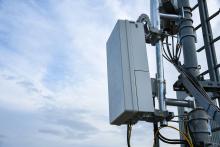Wi-Fi hotspot advocates, on the other hand, would argue that the major costs of providing a hotspot service--the wireless infrastructure and broadband access--are dropping. DSL-based Internet services capable of supporting 10 or more typical concurrent Wi-Fi users are now widely available for less than $100 per month, and the cost of Wi-Fi gear, even specialty stuff needed for hotspots, is falling fast. Thanks to vendors like Airpath Wireless, Gemtek Technology and Toshiba that have released highly integrated boxes that simplify deployment, it's conceivable to deploy a hotspot for up-front costs of $500 or less and recurring costs of less than $100 per month. It wouldn't take much of a customer yield to cover those costs in many venues, even in smaller environments with a single access point.
For more ambitious projects, enterprise-oriented WLAN infrastructure vendors such as Proxim have tweaked their products to support the needs of hotspot operators. And newer vendors like Vivato are using phased array technology that may be able to light up an entire building with hotspot service using a single box. If a venue is appealing enough, hotspot operators will fund all the capital and operational costs in exchange for a portion of the proceeds, a model that has worked for many hotels and airports.
The hotspot market is crowded with new entries, all in search of their piece of what they believe will be a huge market pie. Running a reliable, secure, scalable and manageable hotspot service is a far cry from installing a Wi-Fi gateway in your family room. But despite the challenges, many creative minds are at work trying to make a go of it. The Wi-Fi hotspot market comprises many different players:
Hotspot wholesalers, like Cometa, plan to build out service in various venues and make those services available to retailers, which will handle marketing and fulfillment.
Established cellular carriers, like AT&T Wireless,
T-Mobile and Verizon, understand the potential benefits in high-density environments and feel they can offer hotspots as a complement to 2.5G and 3G service, with seamless roaming between the networks.








